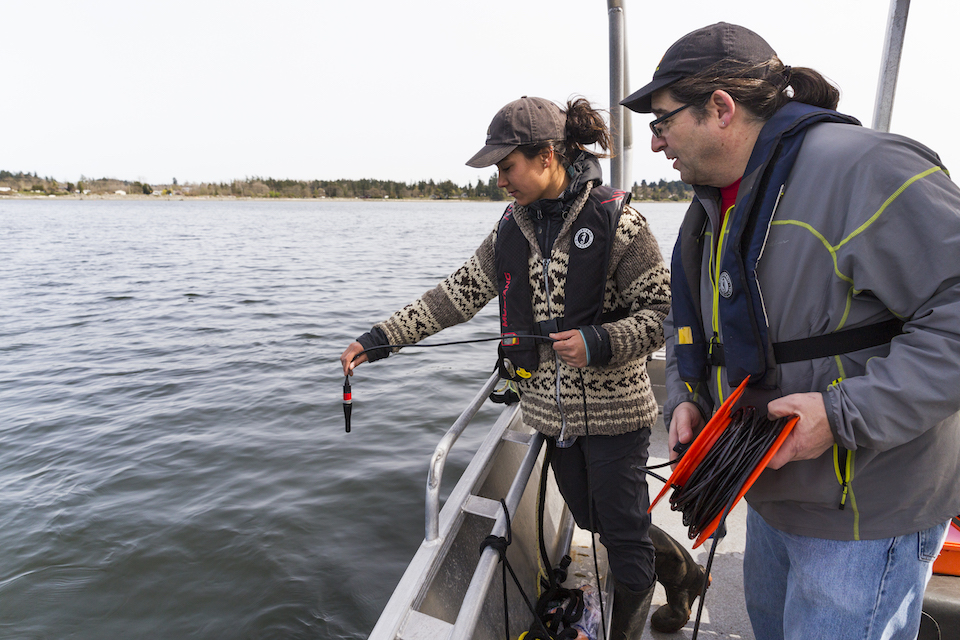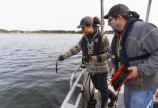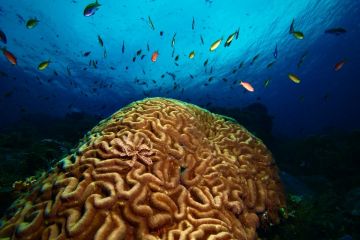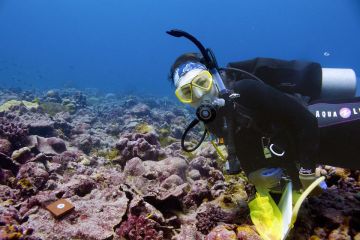Sounding the alarm on aquatic noise

Fish are reacting not just to what people put into the water, but the underwater noise that they create.
A collaborative team led by University of Victoria doctoral student and Hakai Scholar Kieran Cox and fish ecologist Francis Juanes has found that human-caused noise is changing the ability of fish to forage, reproduce and avoid predation. The team analyzed 42 studies from across the globe on the effects of aquatic noise on fish behaviour and physiology, and found anthropogenic noise to be the most compromising factor affecting the ability of fish to feed, avoid predators and reproduce.
“Fish understand their environment through sound,” says Cox. “Mining activities and sea vessels interfere with what they need to hear in order to thrive. The results indicate that fish are stressed and have difficulty hearing over the noise.”
Noise in the open ocean has been steadily increasing since the 1950s, and can’t be curbed simply by declaring a marine area protected. The problem is exacerbated by the medium of water, where sound travels over much longer distances in a shorter period of time compared to air.
“We are only beginning to understand fish communication and the implications of anthropogenic noise,” says UVic biologist Francis Juanes, who is also the Liber Ero Chair in Fisheries Research. “It’s an understudied area that requires more research to determine the extent of the problem and potential solutions.”
Other team members were UVic biology undergraduate student Lawrence Brennan; Travis Gerwing of LGL Limited; and Sarah Dudas of Fisheries and Oceans Canada’s Ecosystem Sciences Division. Funding partners included UVic, the Liber Ero Foundation, the Natural Sciences and Engineering Research Council and the Hakai Institute.
The paper, “Sound the alarm: A meta-analysis on the effect of aquatic noise on fish behavior and physiology,” can be read in the peer-reviewed journal Global Change Biology. Juanes is involved in another UVic research project announced last week that will study the impact of underwater noise on BC’s Southern Resident Killer Whale population and the whales’ primary food fish, chinook salmon.
A press kit containing high-resolution photos as well as audio of aquatic soundscapes is available on Dropbox.
-- 30 --
Photos
Media contacts
Kieran Cox (Biology) at kcox@uvic.ca
Francis Juanes (Biology) at 250-721-6227 or juanes@uvic.ca
Vimala Jeevanandam (Communications Officer, Faculty of Science) at 250-721-8745 or scieco@uvic.ca
In this story
Keywords: fish, oceans, pollution, wildlife, biology, sound, Hakai, ecology, research, graduate research, student life
People: Francis Juanes, Keiran Cox





